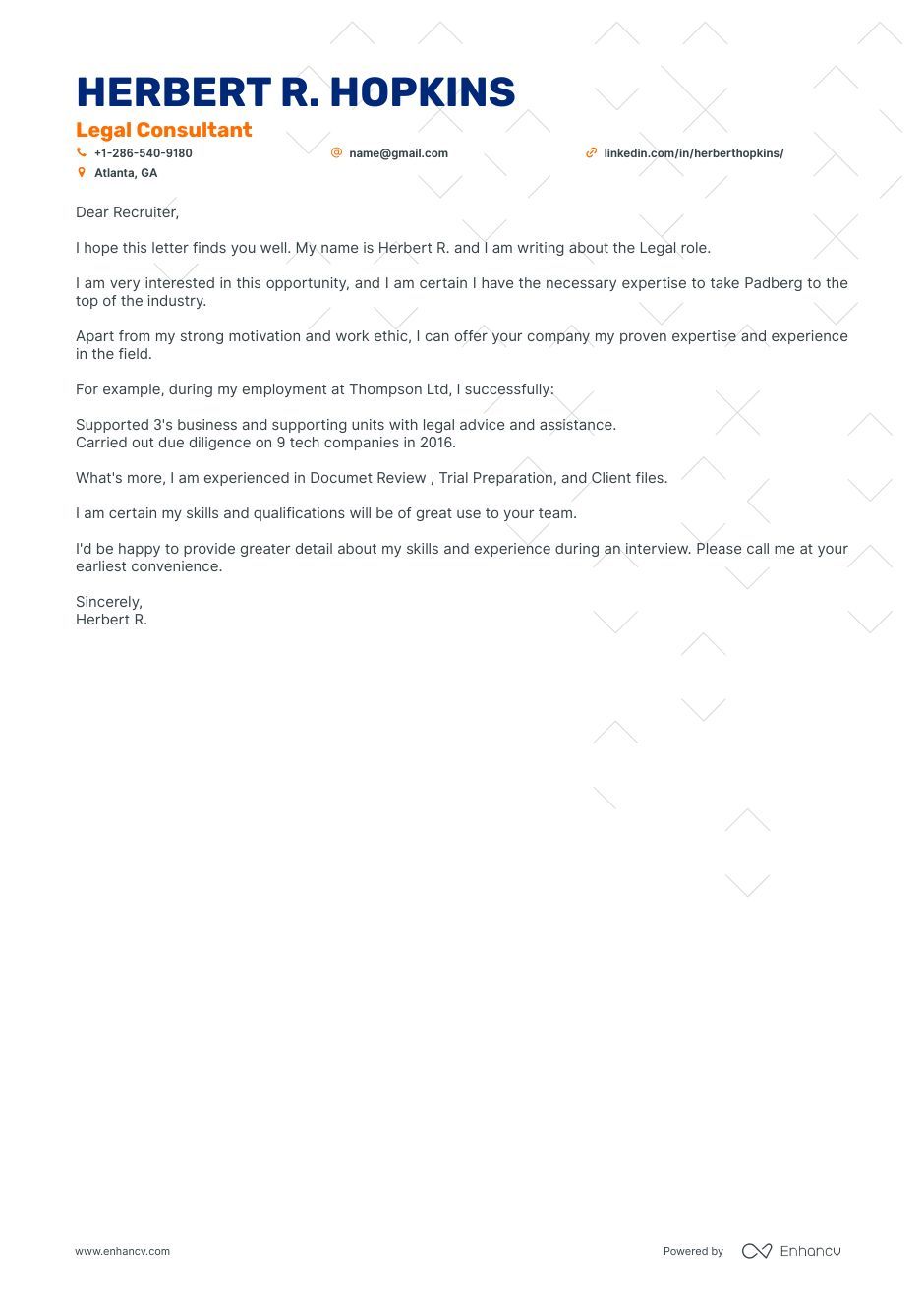Read for inspiration or use it as a base to improve your own Legal cover letter. Just replace personal information, company application data and achievements with your own.
Drop your resume here or choose a file.
PDF & DOCX only. Max 2MB file size.
How to write the perfect legal cover letter
So what’s the difference between a cover letter and a resume?
In short – the resume showcases your achievements and skills, while the cover letter focuses more on your personality and motivations.
Of course, you should mention some of your relevant skills in the cover letter as well. But make sure you’re not repeating your resume word by word.
Now let's move on to the things that make every cover letter great!
Choose the right salutation and write a strong introduction
Choosing the right salutation might be tough – we get it. After all, you don’t want to sound way too formal or too friendly.
There are some things that should definitely be taken into consideration when it comes to addressing your cover letter. First and foremost comes the recruiter’s name.
Even if you don’t know who the person reading your cover letter might be, try to find out. Check company websites or social media profiles or even media articles.
If this doesn’t help, you can go for traditional gender-neutral salutations that don’t require knowing the hiring manager’s name.
Here are some of our favorites:
- Dear Ms. Smith,
- Dear Peter Roberts,
- To the [company name] Recruitment Team,
- Dear Hiring Manager
Coming up with a good introduction is your chance to make the right impression and give the hiring manager a solid reason to remember you.
So instead of going for popular opening lines such as “I found your job advert on website X”, prove that you are actually passionate about the position. Share why you would like to grow in this field and what makes the company exciting.
Don't skip on your Legal soft and hard skills
The resume is the place to list all your hard skills. The Legal cover letter, on the other hand, is the ideal place to emphasize your soft skills and link them to your achievements.
Think about times when your skills have helped you achieve certain goals that seemed too difficult. And don’t worry about admitting some of your weak sides – this is a great way to show recruiters your potential and ability to grow, both professionally and personally.
Looking at the specific job posting requirements could also give you insight on what skills should be included in your resume by all means. This will help you pass applicant tracking systems (ATS) that screen cover letters for keywords before passing them on to recruiters.
Prove your passion about the company
Showing that you’ve researched the company and are familiar with it is a good way to prove your work-readiness.
It will also point the recruiter to the fact that your skills and qualifications will have a long-term impact on the company. Just link some of your strengths to the ways in which current or potential issues can be resolved.
End on a positive note
While a strong introduction makes a great first impression, a confident, yet considerate conclusion is essentially what will get you a callback.
There are different ways to end your cover letter. But remember – the closing line you choose should match the company culture.
Your safest bet would be going for traditional phrases like “Looking forward to hearing from you” or “Looking forward to your reply”. For bonus points, add a simple “Thank you for your time and consideration”.






